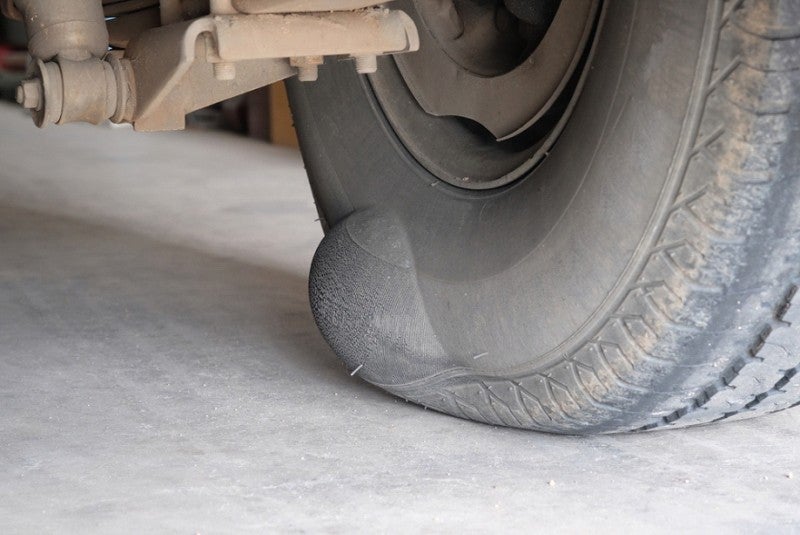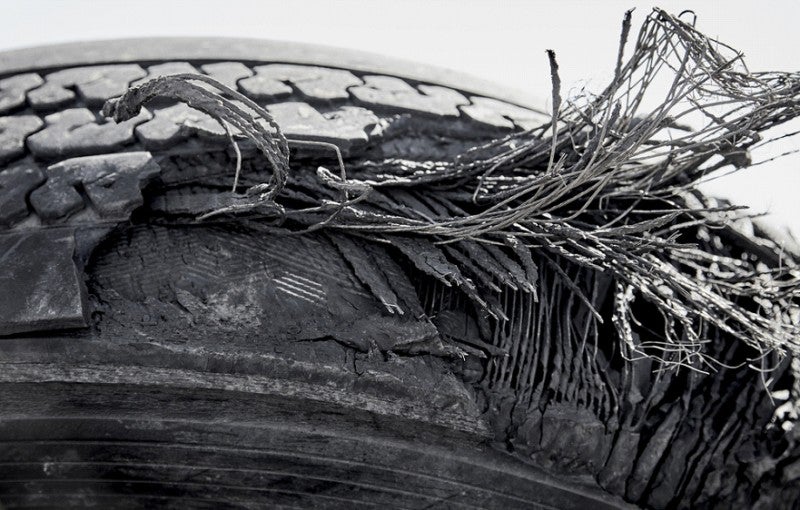To have a valid defective tire case, your attorney must be able to prove three elements: that the tire was defective, that the defect caused your accident, and that the accident resulted in damages like medical bills, missed work, and destroyed property. If this can be demonstrated by your evidence, the manufacturer may be liable for your damages.
One of the first things you should do if you suspect a defective tire may have caused your accident is check to see if it is on the tire recall list. You’ll also want to preserve any evidence you can, including the tire. Finally, check all of your other tires, including the for the following signs. You don’t want to risk another defective tire accident.
Tires are made of multiple layers of polyester bands that are held together with steel bands and rubber. Over time, these layers can deteriorate, break apart, and cause a sudden accident. According to the National Highway Traffic Safety Administration (NHTSA), 738 people were killed in tire-related crashes in 2017.
Here are a few telltale signs that can help you determine whether or not your tires may be defective. If your tires are showing the following signs, you may be able to file a lawsuit.
If you hear a constant humming sound that changes as you increase your vehicle’s speed, that can indicate that your tires are not rotating properly, or that a suspension component has sustained damage. If you hear a repetitive thumping sound while you drive, that can indicate a flat spot on your tire.
Wobbling
Wobbling can happen when the internal belts of your tire have separated from each other. Separations between tire belts cause your tire’s pressurized air to pass on to the rubber tread of your tire, causing bubbles that, in turn, cause wobbling while you drive. Tire bubbles can sometimes be repaired, but the cost would likely be close to the cost of a new tire.
Vibrations
Minor separations developing between the various bands of your tire can lead to vibrations while you drive. Vibrations are sometimes the precursor to tire bubbles and more serious wobbling while you drive.
Vibrations can also occur if your wheels are not properly or evenly attached to the rim or axle. If your tire vibrations are caused by improperly attached wheels, just visit your local tire shop and ask to have your tires balanced. If the vibrations are the result of damaged tire bands, you will likely need to replace the damaged tire.
Traction Issues
If you cannot get the traction you need while driving on wet or slick surfaces, your tires have probably been worn down too much. If your tread is worn down in some places, then you are either driving on tires that are not inflated properly or your tires are not aligned properly. Once your tread hits the minimum safe depth of 1/16 of an inch, you should buy a new set of tires.
Also, when your tire’s tread wears down and there are no more grooves in the tread, fluid buildup can occur between your tire and the road, leading to what is known as hydroplaning, another one of many common tire tread problems. This occurs when fluid buildup causes your tires to lift off from the road and you lose all traction.
Sidewall Damage
Federal tire safety regulations provided by the U.S. Government Publishing Office can be looked up using the Electronic Code of Federal Regulations (eCFR). These regulations state that you are not allowed to drive on wheels that:
•Have body ply or belt material exposed through the tread or sidewall
•Have tread or sidewall separation, or
•Have cuts to the extent that the ply or belt material of the tire are exposed
With this in mind, check your tire sidewalls to make sure that they do not have any cuts or cracks. Sidewall damage is most often caused by road debris, rough roads, and rough driving. Bubbles, blisters, and worn sidewalls are all indications that you need to replace your tires.
If you noticed any of these conditions prior to your accident, be sure to tell your attorney. Click here to find a car accident attorney in your area. Any feedback you can give them could strengthen your case. If a defective tire caused your accident, you should not admit fault, don’t say you’re “fine,” and keep your communications with claims adjusters to the bare minimum.
How Do You Know if You Have a Defective Tire Case?

